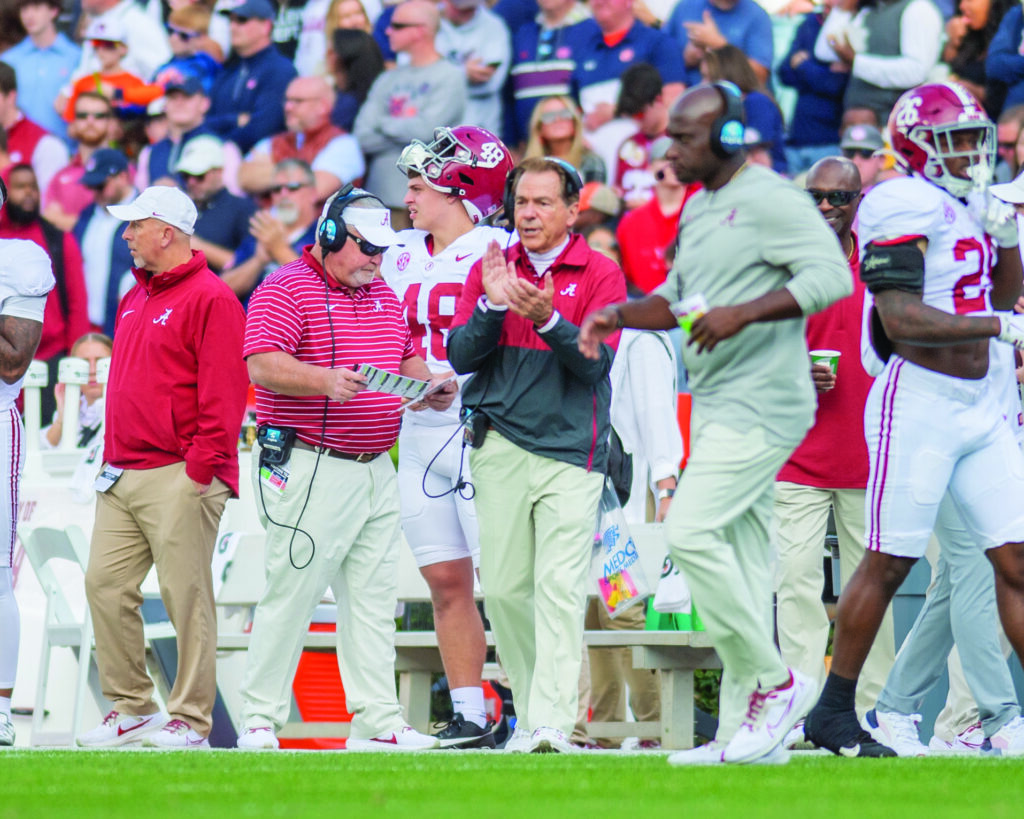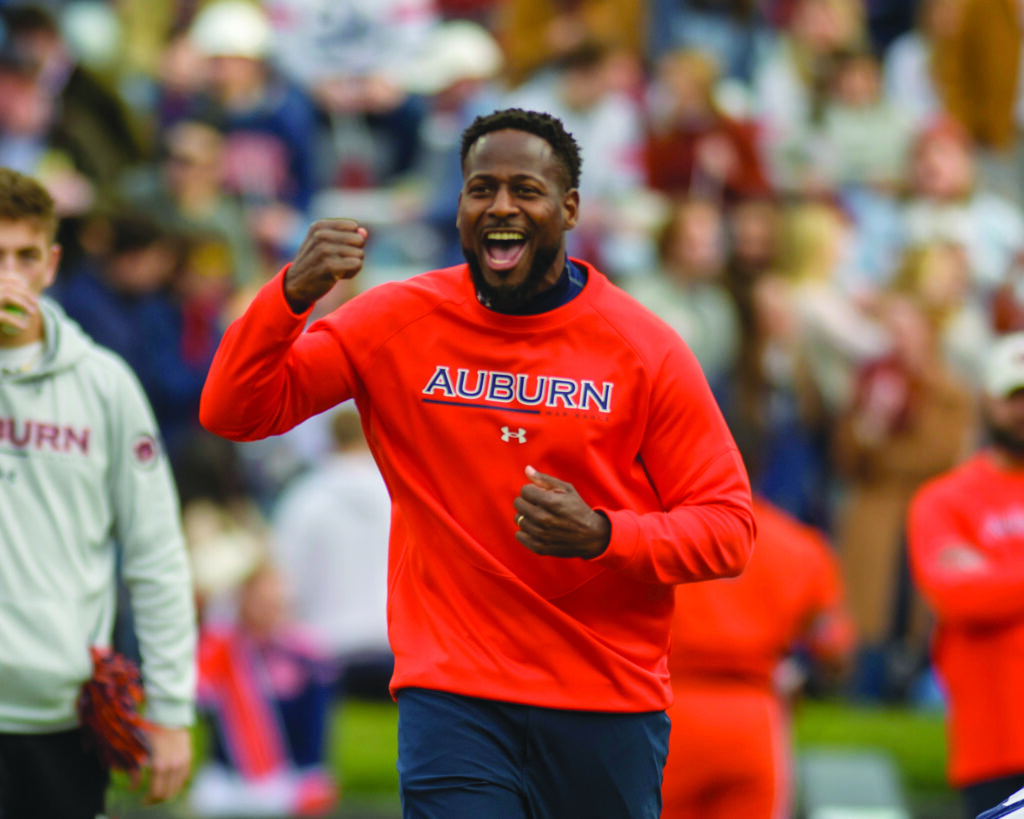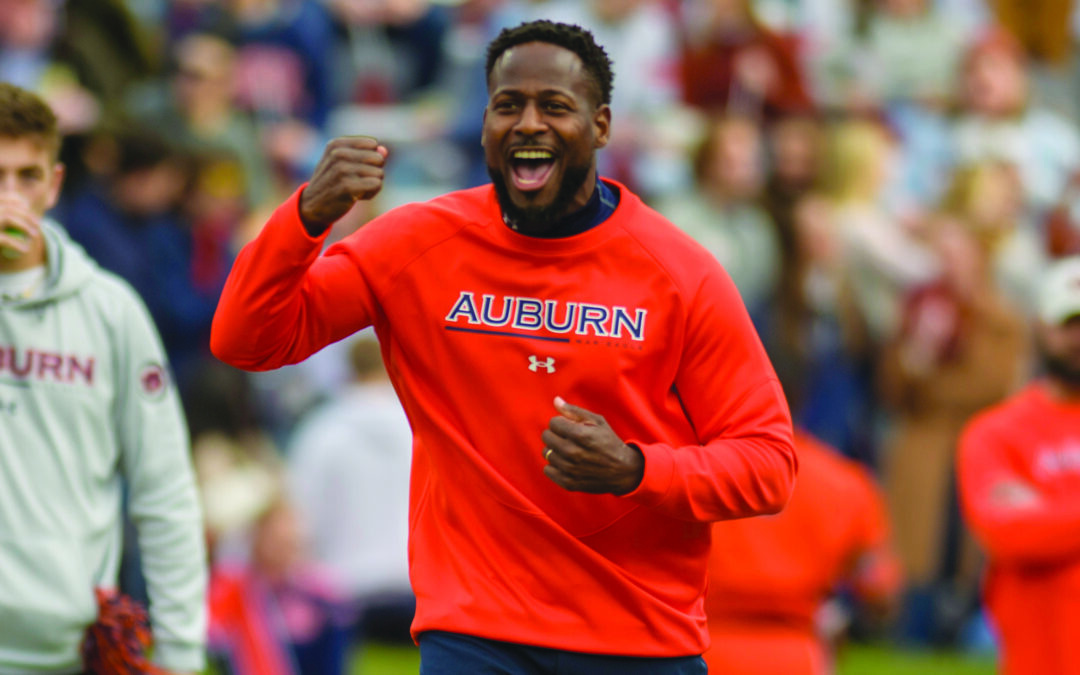BY BRANDON HUGHES FOR THE OBSERVER


AU running backs coach Carnell “Cadillac” Williams, right, resigned to pursue career opportunities elsewhere. Alabama coach Nick Saban, left, announced his retirement.
ALABAMA — As the dust settles on another college football season, in a tradition as old as the game itself, athletic directors and head coaches alike reflect on their team’s performance, recalibrate their ambitions and embark on the quest for the right combination of coaches to navigate the challenges ahead by firing, hiring and transforming their coaching staffs in the pursuit of wins and championships. The end of the season always brings a flurry of coaching changes, from the high profile to the mundane, acting as a bridge of sorts, taking us from the end of the regular season and playoffs on into spring practice.
AUBURN UNIVERSITY
In Auburn’s case, first-year head coach Hugh Freeze fired his offensive and defensive coordinators, Phillip Montgomery and Ron Roberts, respectively, in the wake of a 6-7 season in which the offense struggled often, and the defense failed to close out games. As of this writing, their replacements have not been named.
In two other moves, running backs coach Carnell Williams and defensive backs coach Zac Etheridge resigned.
Both Etheridge and Williams were beloved former Auburn players who each played significant roles on two of Auburn’s best football teams in history — Williams was a member of the undefeated 2004 squad, while Etheridge won a national championship in 2010 — so the fans let their confusion and frustrations known on social media.
To say Williams’ resignation came as a shock to the fan base would be an understatement. He stepped up and held the team together after Brian Harsin’s tumultuous twenty-one-game tenure at Auburn. He went 2-2 as interim head coach at the end of the 2022 season and was retained by Freeze to coach running backs this past season. Williams indicated in a public statement that it was a personal decision to resign.
With Kent Austin being promoted to quarterbacks coach (replacing Montgomery), it is anticipated that whoever Freeze hires as offensive coordinator will also serve as running backs coach, taking Williams’ spot.
While Etheridge’s resignation was also met with disappointment, it should not have come as a tremendous surprise. He wants to move up the coaching ranks, and the path to doing so involves moving on and continuing to build his resume. He took a job with the University of Houston in the same capacity as he served at Auburn.
Wesley McGriff—who began the season on the coaching staff—stepped away mid-season before leaving at the end of the season and taking a job with Texas A&M. After losing Etheridge, though, McGriff returned to his previous position coaching defensive backs.
Charles Kelly was also recently brought in by Freeze and given the title of co-defensive coordinator. A former Auburn Tiger, Kelly played under Pat Dye from 1986-89. He brings in a laundry list of accomplishments as a defensive coach, but he is perhaps most valued as a recruiter, being named the top recruiter in the country for 2023. He comes to Auburn from the University of Colorado, where he served as Deion Sanders’ defensive coordinator last season. Prior to 2023, he served in various defensive and special teams roles at the Power 5 level with stints at Alabama, Tennessee, Florida State, and Georgia Tech.
UNIVERSITY OF ALABAMA
Across the state in Tuscaloosa, in the biggest story of the young off-season’s news cycle, Nick Saban abruptly announced his retirement after 17 years as the Alabama head coach. Saban leaves the game as the fifth-winningest college football coach of all time with 297 wins against 71 losses and a tie. His teams won seven national titles, the most all-time by a college football coach.
He began his head coaching career at Toledo in 1990, where he spent just a single season before moving on to Michigan State. After five seasons in East Lansing, he bolted to LSU, where he stayed for five seasons before giving the NFL a try. He lasted only two seasons coaching the Miami Dolphins when, after posting a 15-17 record, he quit to take the job with Alabama.
Saban stumbled out of the gate, going 7-6 in his first season with the Crimson Tide, which included a loss to Louisiana-Monroe, before going on an unprecedented run in recruiting that saw the Tide amass more talent than its opponents, leading to a stretch not likely ever to be seen again in college football.
In discussing the reasons for his retirement, Saban mentioned the changing landscape of college football. Specifically, he pointed to his dislike of Name Image and Likeness (NIL), which leveled the recruiting playing field, and his frustration with the transfer portal.
The college football world watched as Alabama Athletic Director Greg Byrne searched for Saban’s replacement. After a number of coaches announced they were staying put at their current jobs—Oregon’s Dan Lanning, Texas’ Steve Sarkisian, and Florida State’s Mike Norvell—Byrne finally tabbed University of Washington’s Kalen DeBoer as Saban’s successor. He comes to Alabama with two years of Power 5 head coaching experience, going 25-3 at Washington. Prior to Washington, he spent two seasons leading Fresno State to a 12-6 record.
DeBoer has spent more than 20 years as a coach at the collegiate level. He was hired as the offensive coordinator at NAIA University of Sioux Falls, his alma mater. He was promoted to head coach at Sioux Falls in 2005, going 67-3 and winning three NAIA national championships in five seasons. DeBoer parlayed that success into an offensive coordinator position at Southern Illinois from 2010-2013. He moved on to Eastern Michigan in the same capacity from 2014-2016, then to Fresno State from 2017-2018, and Indiana in 2019, also as the offensive coordinator.

